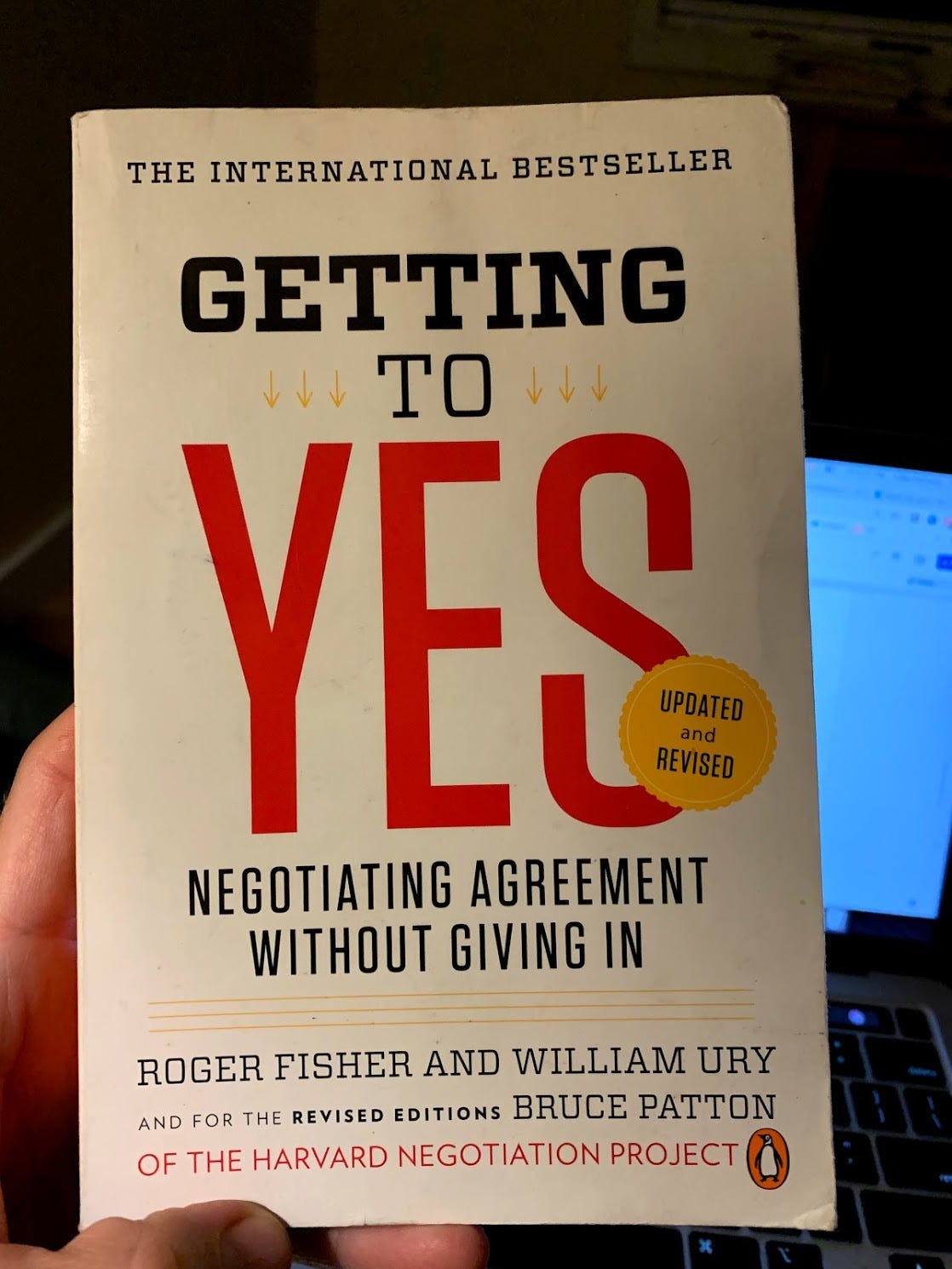How your brain keeps you from asking for what you want
Our brains evolved by playing it safe. That's not always helpful when we're asking for what we want. What are some ways to work through that?
I check in with myself quickly to ask if I am actually getting what I need? I had imagined having to make hard choices and it was confusing to not have to. “Thanks for the nudge,” I said. “That wasn’t a nudge,” he responded. “It was a shove. Just go do it.”
We constantly need to ask for what we want. Why is it so hard?
It turns out our brains have a lot to do with it. The mass of meat in our skull kept us alive by playing it safe, not by taking risks.
One way it kept us safe was by developing biases, preferences for certain ways of responding, such as a bias towards avoiding loss. “Loss aversion bias” prevents us from taking even smart risks with the potential for worthwhile gains. This can make us reluctant to ask for what we want out of fear of losing what we have.
This shows up particularly strong through our fundamental desire to belong. This desire goes back to our prehistoric ancestors for whom rejection from the tribe could have fatal consequences. “Belonging is the innate human desire to be part of something larger than us,” says researcher Brené Brown. She continues, “because this yearning is so primal, we often try to acquire it by fitting in and by seeking approval.” I had been feeling this deeply as I prepared to make my ask. I believed I was making an ask that would jeopardize my role on the team.
Our brains aren’t always great at forecasting outcomes though. Cognitive distortions, habitual ways of thinking that are often inaccurate and negatively biased, cause us to create untrue stories about how things could play out. For example, if you’re suffering from “all or nothing thinking” you may fear that you’ll be resented for asking for a raise. In reality you might just be given milestones to hit in order to get that raise. I also know I’m not alone in the regret of sacrificing what I wanted for a “safer” bet that never showed up.
Even if we plan to make the ask, we might delay because of status quo bias, a preference for the current state. This can be quite damaging for our ability to achieve our goals, as we achieve our goals through the patient building of capital. As we age, we lose the desire to build this capital, be it knowledge capital, social capital, or financial capital. While we delay asking, we’re moving to points in our life where we’re less likely to be able to achieve our goals.
Worse yet, delaying the ask could actually be killing you. That desire you feel towards a goal or frustration you feel when you don’t achieve it are important emotional signals. Studies have shown that suppressing such emotions can increase the risk of early death, including from cancer.
How do we ask for what we want?
If asking is hard but worthwhile, how could we make it easier?
First we must overcome our fear. Some easy activities can help us reduce our baseline emotional reactivity to fear. This includes sleeping, exercising, practicing gratitude, and meditating. Professional counsellors can help too, by countering cognitive distortions, and building up your feelings of self worth so you’re more confident making the ask.
Before you make the ask, it is useful to get clear on your “interests.” This is one of the most helpful pieces of advice in Getting to Yes, a Harvard Negotiation Project book that I take out every time I’m making a difficult ask. Interests are the desires and concerns that motivate people. Grounding yourself in the why helps you muster the courage to ask.
To get clear on your interests, ask what you want, and then ask why you want it. This helps you get down to the most powerful interests, which are often basic human needs such as safety and belonging. Beyond helping with the ask, the pre-planning acts as an exposure therapy making the actual ask less frightening.
Finally, be compassionate with yourself. Courage is hard. And you may find yourself frustrated when weeks go by without you asking. If you are too critical you’ll hurt your self-esteem and the likelihood of asking. If you instead practice self-compassion, treating yourself like a friend, you’ll be more likely to recognize your value and feel okay making the ask.
So, if you haven’t yet gotten to it, can I ask you to be gentle on yourself?



